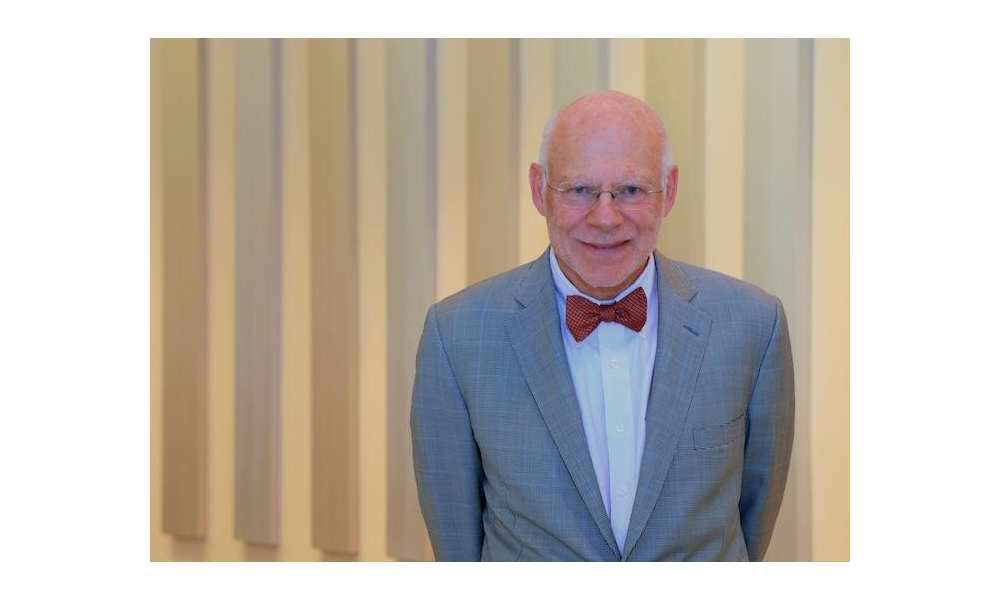Acquisitions
Inside the Boardroom: Francis Greenburger
By
Joseph Richter

Francis Greenburger, Chairman and CEO at Time Equities, joined the Real Estate Daily Beat for an interview. We discussed the unique challenges confronting high-street retail, the multi-family market, public REITs, the allure of PropTech, and other interesting topics.
Daily Beat: Joe Sitt’s retail property at 470 Broadway had its value cut again to $5.6 million from $29.2 million in 2012. The property backs $17.5 million in CMBS debt and has been delinquent since May 2020. Will this segment of the retail market ever recover?
Francis Greenburger: I think it’s going to be a long time because what occurred in high street retail is that bricks and mortar turned into advertising. The stores at such high rents weren’t really economic for the most part, but was a function of executing brand strategies and offering an advertising quality of being in certain key locations. As a result, these rents rose to uneconomic levels.
Daily Beat: Do you think e-commerce has also been a factor?
Francis Greenburger: I think when you talk about high street retail, it has less to do with e-commerce as it does with e-advertising. Traditional media advertising has been completely disrupted by Google, Facebook, and social media platforms.
The value of all traditional advertising, which included in essence bricks and mortar branding changed and I think that’s part of what’s going on. I can imagine that those businesses that were tied to bricks and mortar retailing primarily felt pressure in their overall strategy and their ability to carry these loss leader locations. Their appetite also reduced as a function of the rest of their business.
Daily Beat: Have you allowed retailers to do the percentage of sales deals in lieu of fixed rent? Do you think the traditional retail lease will remain prevalent moving forward?
Francis Greenburger: We are not doing percentage rents, particularly not in our national urban portfolio. In terms of our New York portfolio, we have allowed some percentage deals, but structure them in a more traditional way. In other words, the tenant pays a base against a percentage. As an example, let’s say a retailer can no longer pay $180 per SF, what we’ve done in that scenario is offer base rent of $150, but against 10% of sales. Meaning, if the tenant does well then the lease will increase.
Daily Beat: This allows you to capture the upside.
Francis Greenburger: Yes. It’s giving a little bit of a break in the rent, but it’s not a pure percentage of sales deal. We have had a couple of cases where existing retailers wanted more drastic reduction where we might have granted it on a temporary basis, but in such a scenario we typically get the right to cancel the lease on 30 days or 60 days notice.
Daily Beat: What about your thoughts on the retail sector as a whole? How do you envision the future of the space?
Francis Greenburger: One of the things about retailing is it’s always been a fashion business in the sense that in the old days F. W. Woolworth was the dominant retailer. Sears came along and then Walmart. The industry has always been evolving and that’s something that people forget.
Daily Beat: And now Amazon is planning to open department stores?
Francis Greenburger: Yes, they’re going to omnichannel because they figured out that there’s not one answer to retail. Nationally, we also see that there’s a lot of interest in turning former big box spaces into kind of these somewhat warehouses as a form of omnichannel, but with a heavier emphasis on the fulfillment space.
Daily Beat: What you’re describing sounds like a micro-fulfillment center in a retail setting?
Francis Greenburger: Yes. A micro-fulfillment center, but with some retail display.
Daily Beat: Target and Walmart’s success with a lot of store pickup makes the economics superior, while Amazon has just been relying on Prime subscription to pay for the retail business. They are clearly looking for a way to monetize from a pure retail vantage point.
Francis Greenburger: Yes. A merger of all of these approaches is probably where the future lies.
Daily Beat: What has Time Equities focused on since then the pandemic? Is there an asset class you are particularly bullish on?
Francis Greenburger: We are by nature an opportunistic company and adapt to changes in the marketplace in a real time way. As an example, we normally don’t trade public real estate stocks, but it came to our attention that the preferred stocks of certain major REITs were disrupted in their pricing and there were some major arbitrage opportunities.
Brookfield, for instance, had a preferred stock issue related to its office properties, which was trading at close to 10% dividend. And in the capital stack, it was around 55% loan-to-value, so we felt it was ultra extremely secure. Traditionally, it had traded around 5% and at the same time, the unsecured bonds, the general obligation bonds of Brookfield were trading at 3%, which resulted in a much more secure position trading at 10%. So we entered into doing something we’d never done before and went into the public real estate markets and took a position in it as well as some other public real estate companies.
Daily Beat: That’s what happens when there’s chaos in the market. SL Green was trading at an absurd discount of $39 or so at a time. It got to a point where we had to flag it for our readers!
Francis Greenburger: Not as absurd as it was in 2009 when it went from $100 to $9!
Daily Beat: Are these also long positions?
Francis Greenburger: What we do is very esoteric because we’re not trading in the common stock, we’re trading in the preferred stock, which most people don’t even know about. You have to trade it in particular exchanges.
We also have a separate platform, nothing to do with real estate where we’re heavy investors in private equity and hedge funds. Our team was well positioned to partner with a hedge fund that had an analyst who was very knowledgeable about these particular REIT stocks.
This standalone fund continues to do well. We set it up in June of 2020 and we made about 25% through the end of the year, so it’s almost 50% on an annualized basis. And this year, I think we’re in the mid twenties again, so we’ve seen very good returns.
Daily Beat: Even Brookfield common stock is up over 100% from the pandemic low! What opportunities have you taken advantage of insofar as physical assets?
Francis Greenburger: We took advantage of excellent deals in Great Britain. What happened during the pandemic was that English public funds often have a redemption feature and there were forced redemptions that had to be met. In other words, these funds had to sell in order to meet the redemptions that they were getting. We ended up buying two fully-occupied properties, one in Scotland and another one near Manchester at double digit going in cap rates, which was almost double what they might have traded for previously.
Daily Beat: Are you referring to the Bolton shopping park deal? Were those fully occupied?
Francis Greenburger: Yes, those were at double digit cap rates.
Daily Beat: With interest rates so low, where are you finding the best yield in this market in the United States? What are your thoughts on the hot multi-family market? Cap rates?
Francis Greenburger: We are seeing three caps in Austin and certain markets in Florida. In this environment, you have to be a little creative in finding opportunities. If you’re a leveraged buyer and you’re buying in the threes or even the low fours, it’s an accident waiting to happen. To me that’s a suicide mission.
Daily Beat: Do you have any thoughts on Governor Katy Hochul and New York City’s likely next Mayor, Eric Adams?
Francis Greenburger: I’ve known Kathy for a number of years. She lives up to what everybody says and is extremely friendly and open minded. She will bring a breath of fresh air, but I know that she also has a tough side that we will need because moving the state bureau is not easy. I’ve also gotten to know Eric reasonably well and spent quite a bit of time with him over the past year. I supported him and I think he’s the right person for New York at the moment.
Daily Beat: Regarding PropTech startups, do you think WeWork is emblematic of a larger problem within the space? Is there truly disruptive technology being developed?
Francis Greenburger: Some of these real estate technology undertakings are not as innovative as they look and I wonder how big a market there is for them. How many locking systems can there be? There are many enhancements going on, but I think it’s on the margins.
Daily Beat: So you don’t think there are as significant as technological innovations as there are in other verticals?
Francis Greenburger: I think you can accuse a lot of money going into certain aspects of tech that are in search of a gold mine that doesn’t really exist. But it’s my experience – we do a lot of tech investing – you really have to differentiate between the ideas that are unique and viable and can be scaled and the ones you cannot.
Daily Beat: In 10 years from now, which trends from Covid vis-à-vis commercial real estate will still be prevalent?
Francis Greenburger: I think that we end up with a hybrid office model where people work at home one to two days a week. There’s a lot that doesn’t happen on zoom that does happen in a more social setting. One of the essential functions of a business is to train employees and help them advance in their career, which tends to happen in an informal way in person. We know from online learning, studies show that the outcomes are 30% less effective than in person learning. There is also a need to have a physical representation of corporate culture, but there will definitely be a work at home component.
*The interview has been edited and condensed for clarity.





